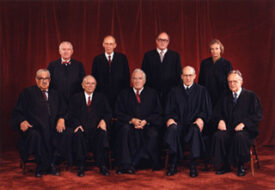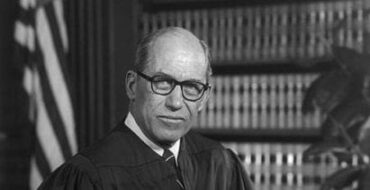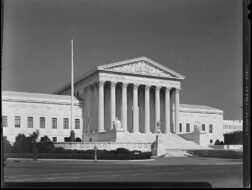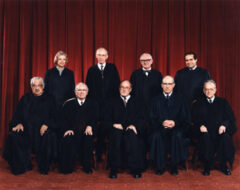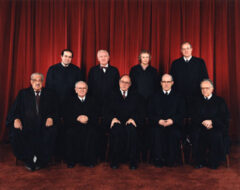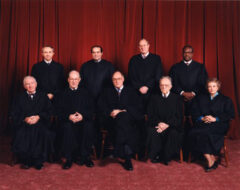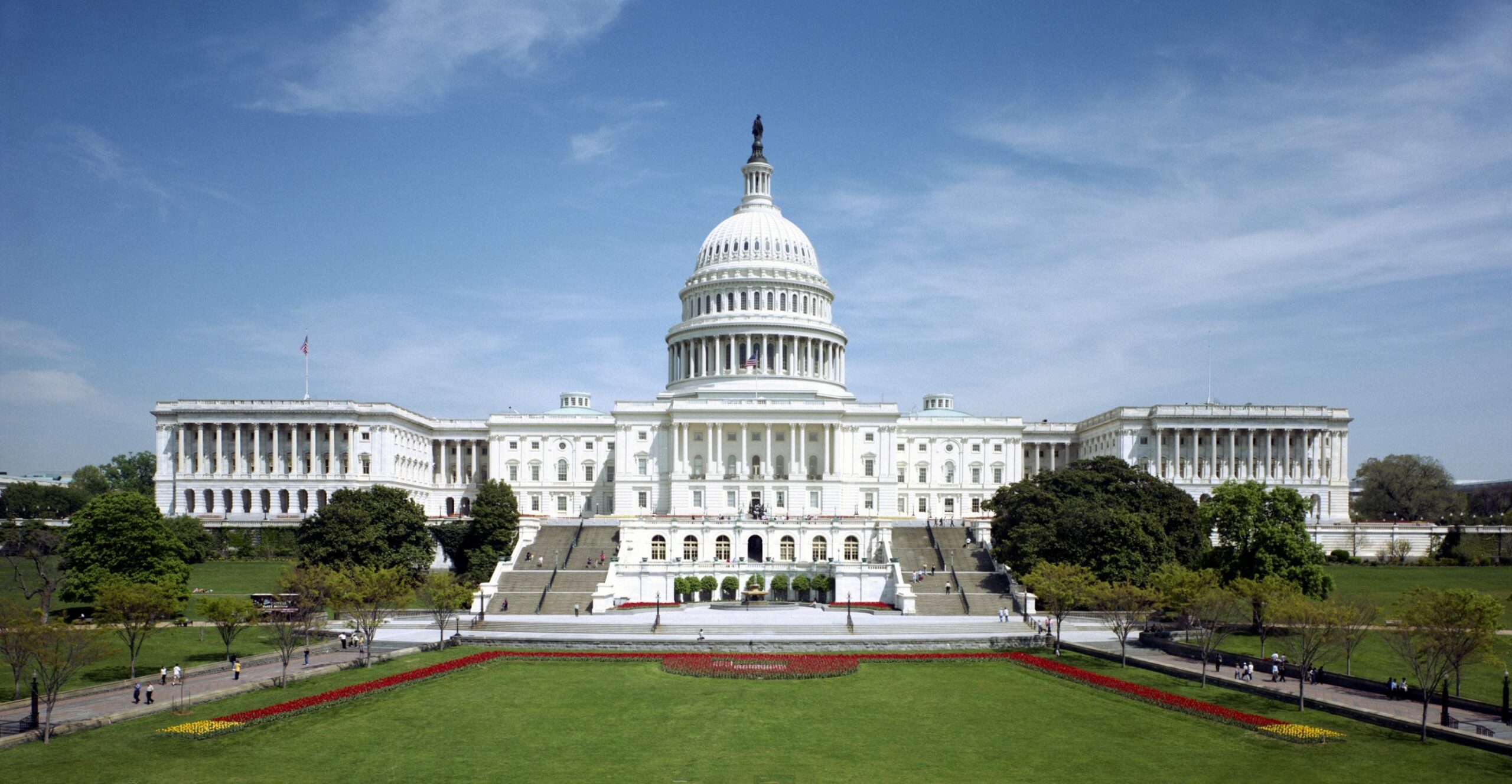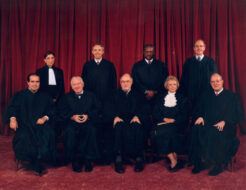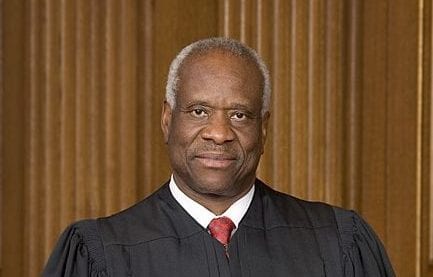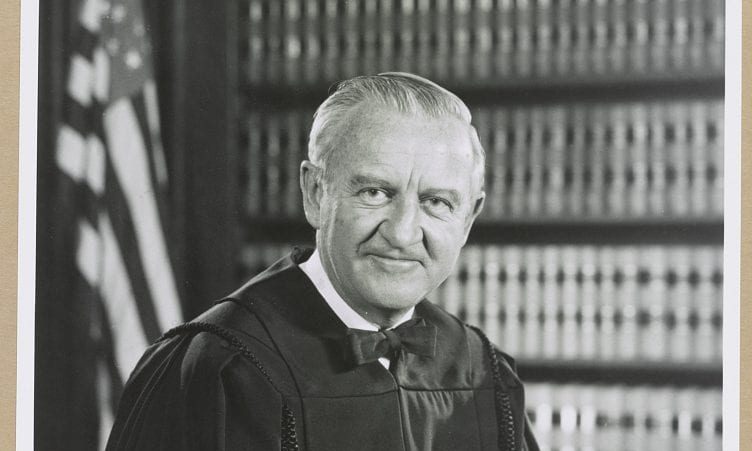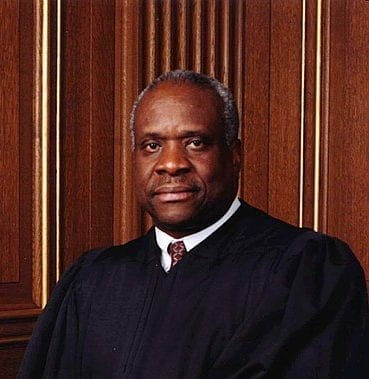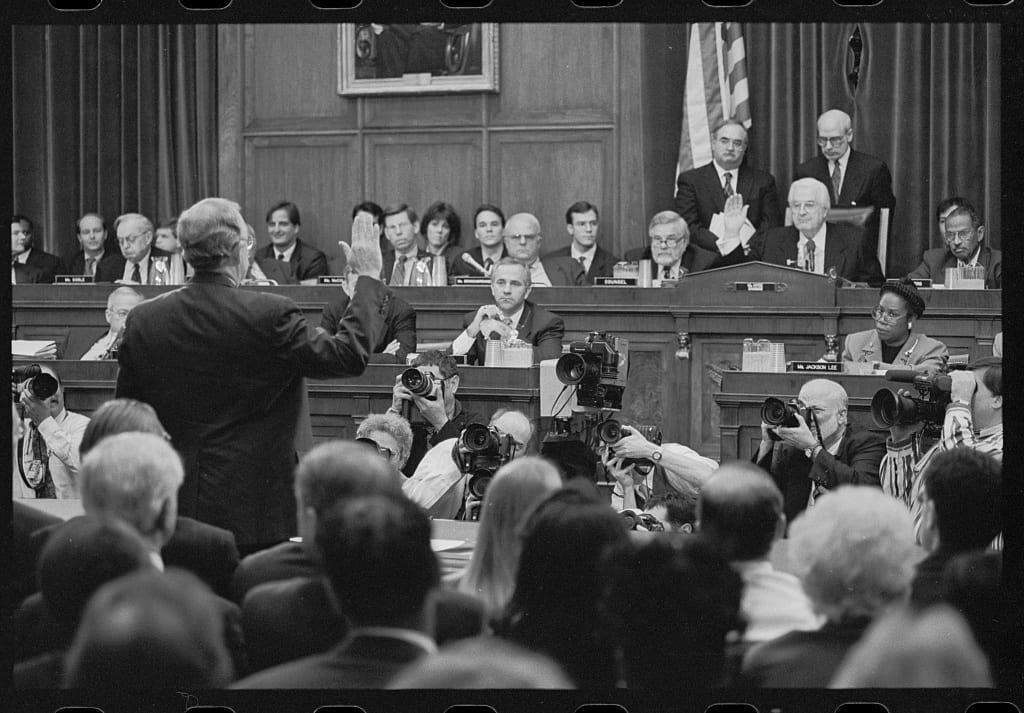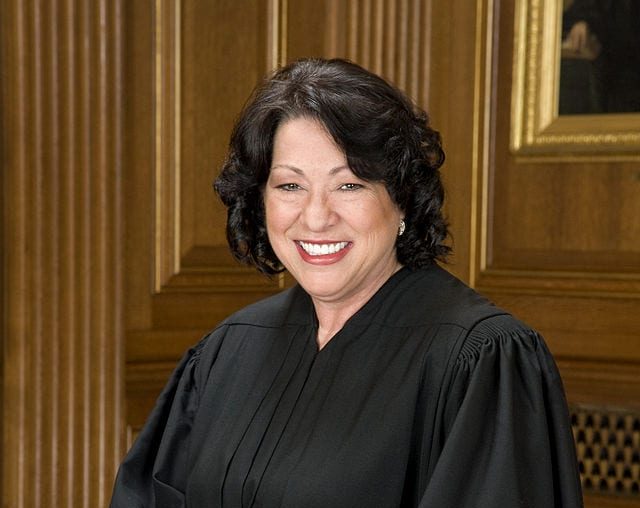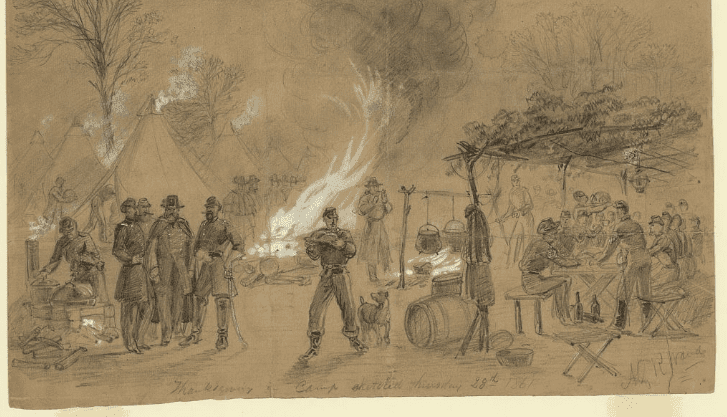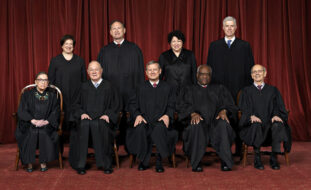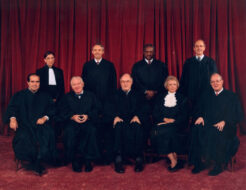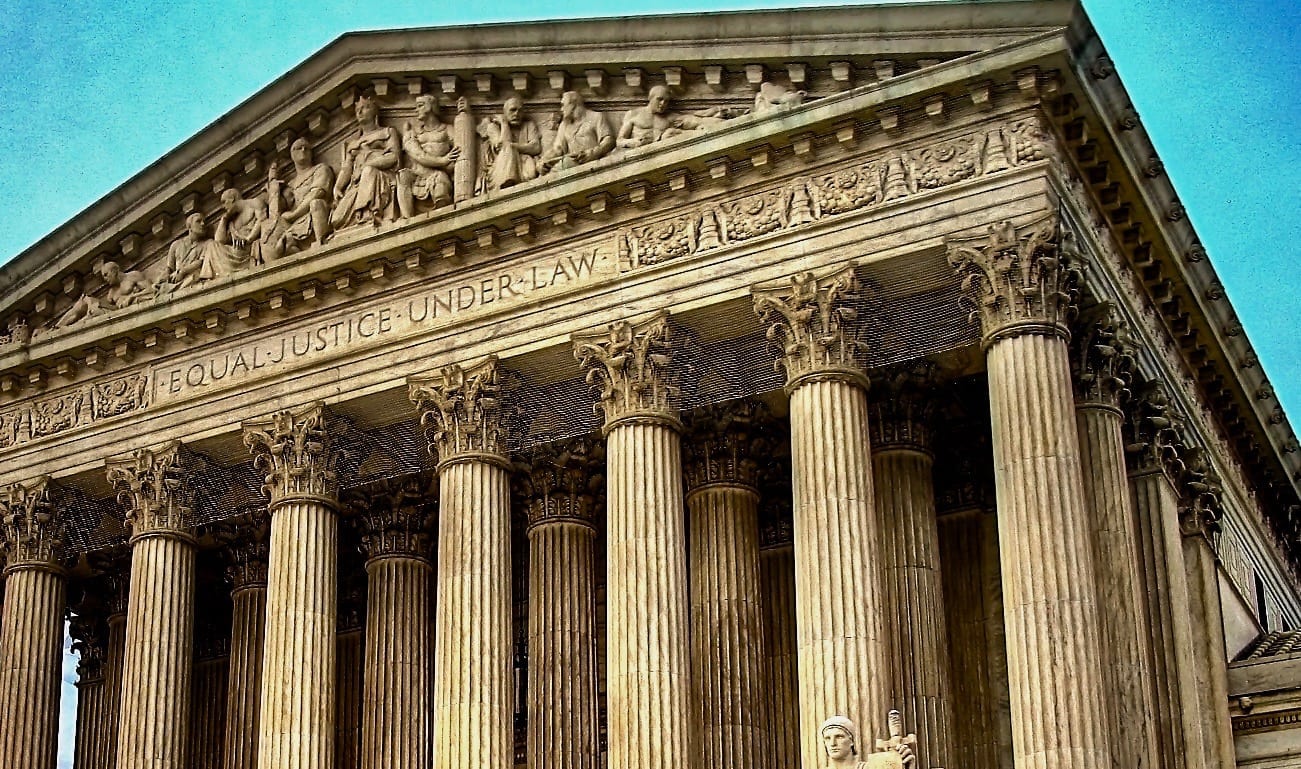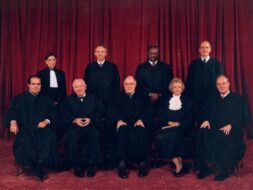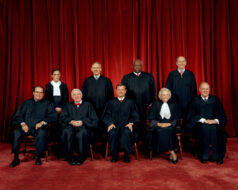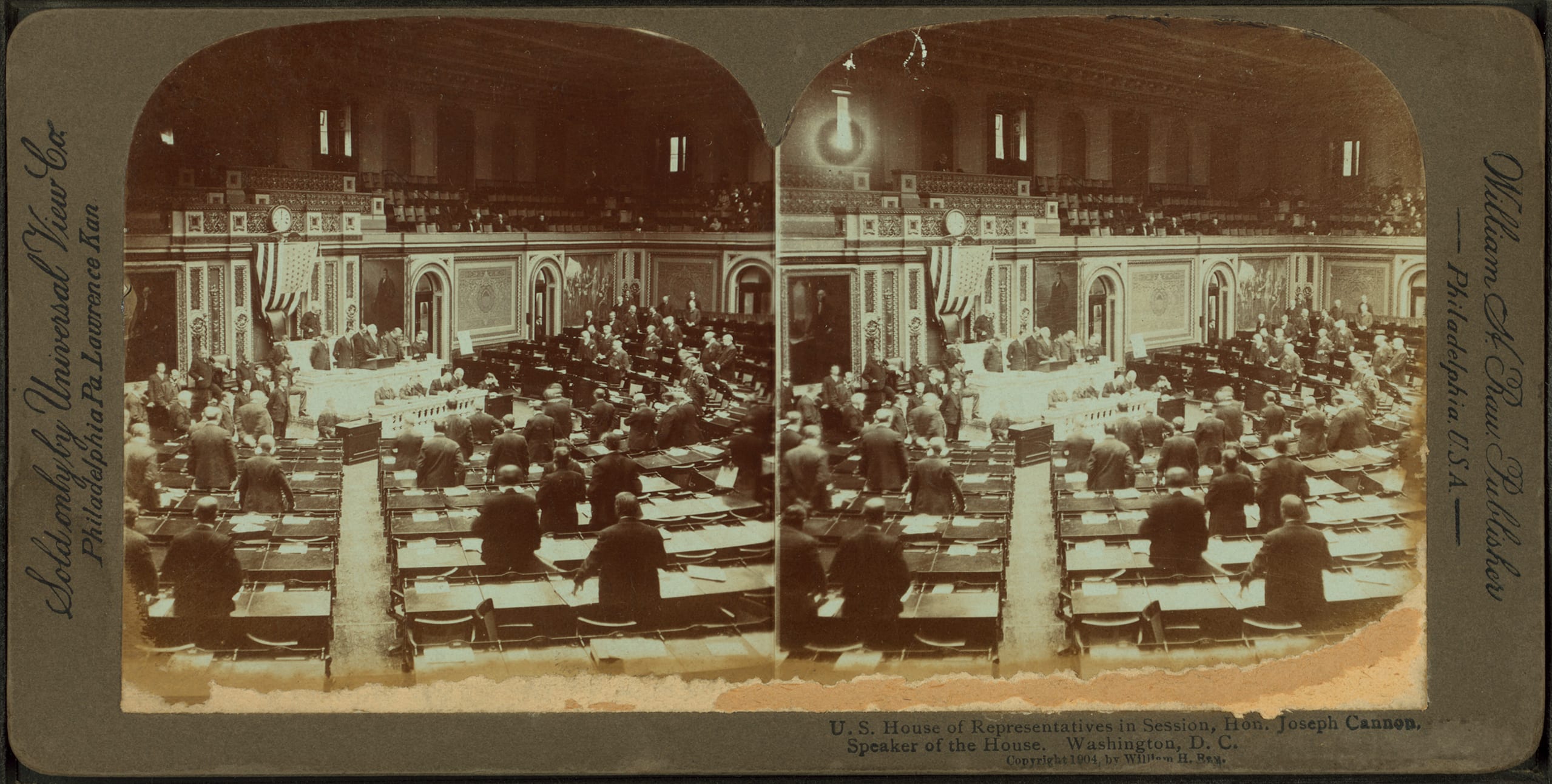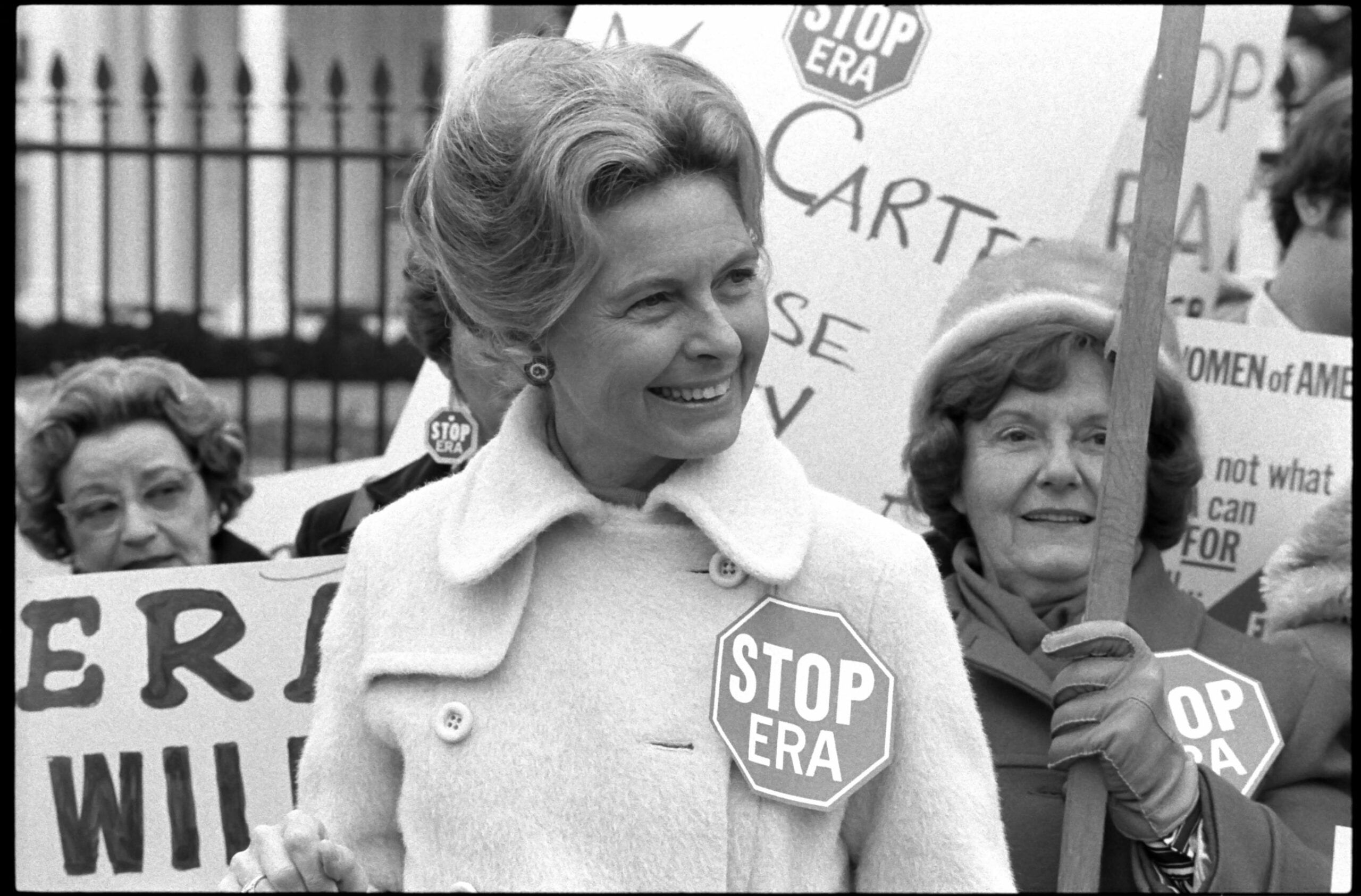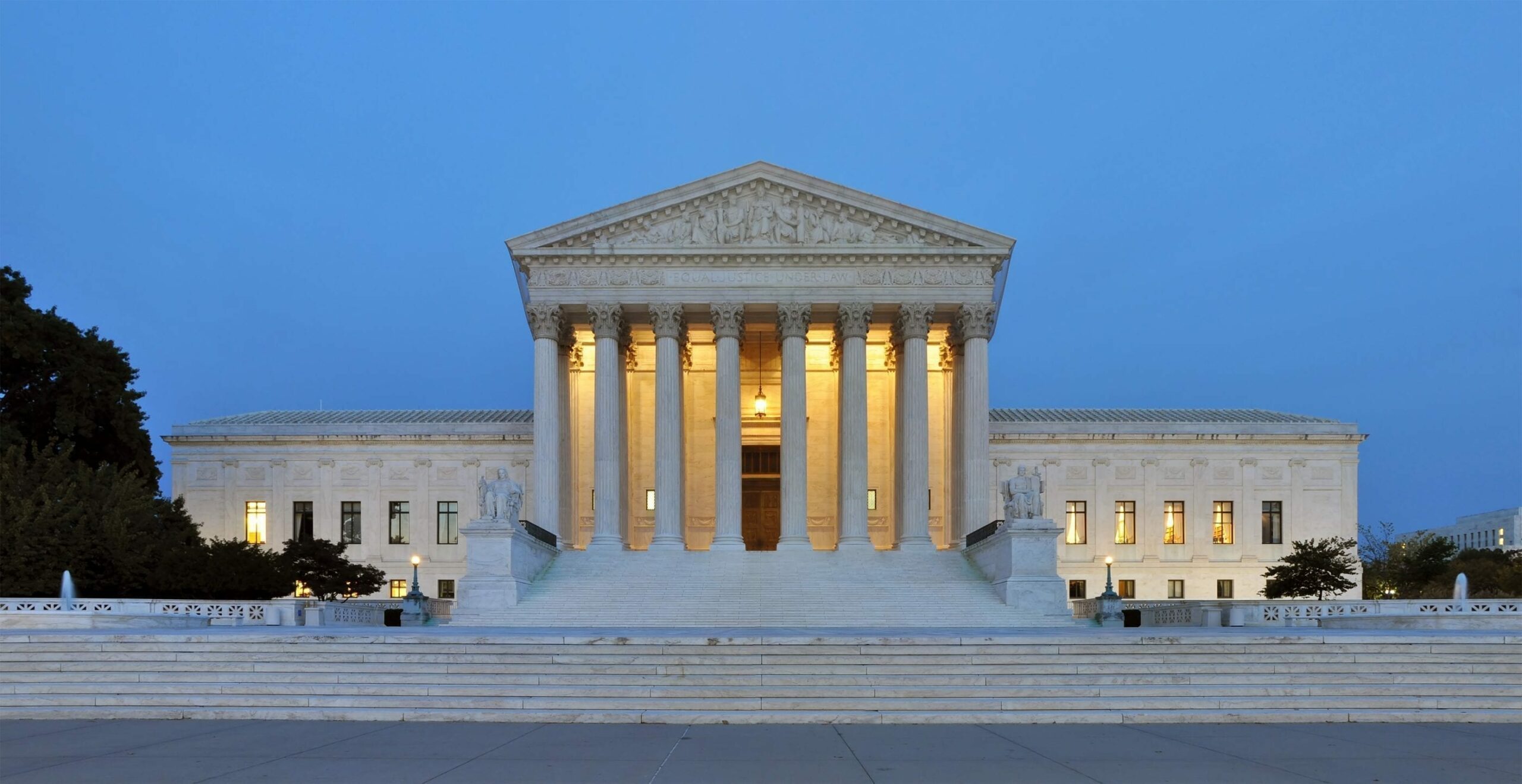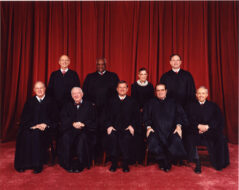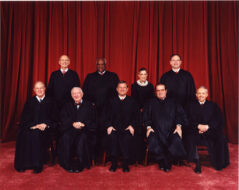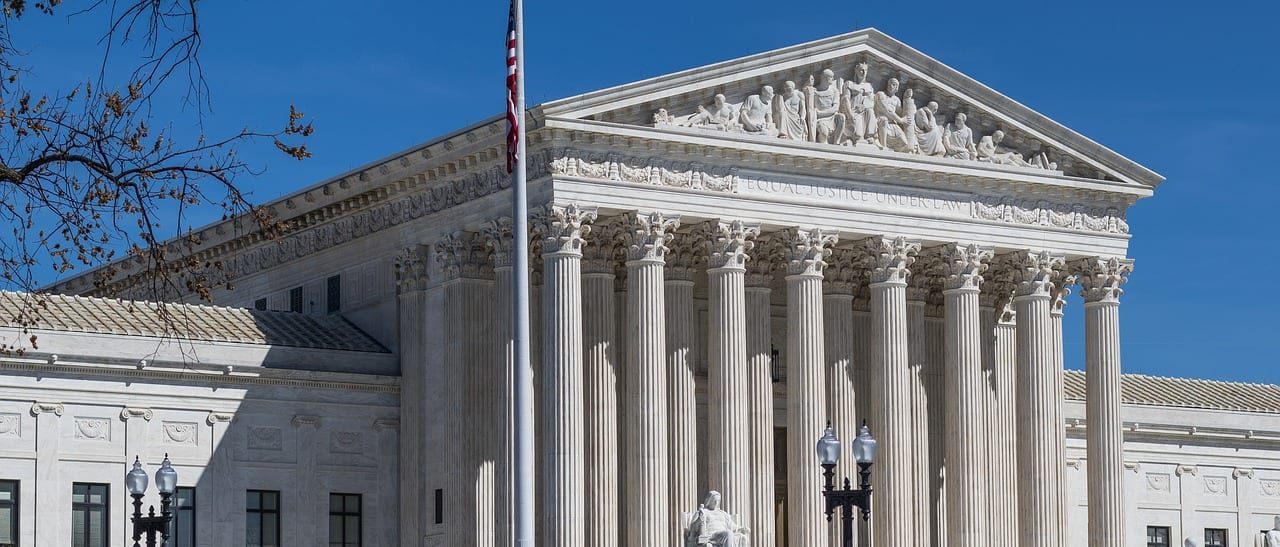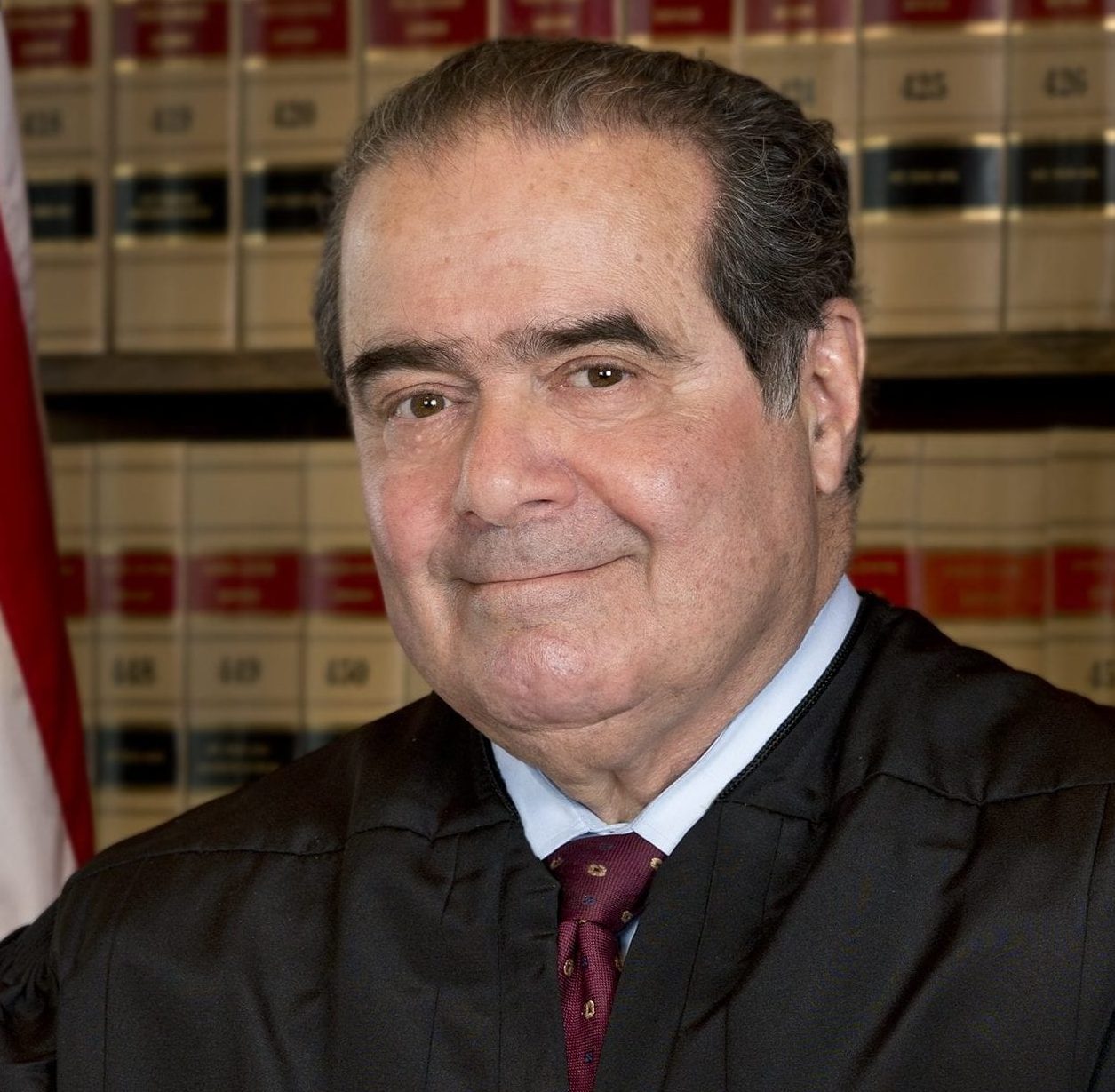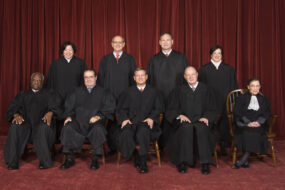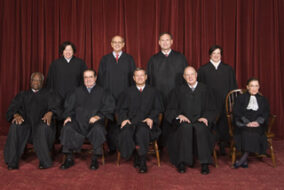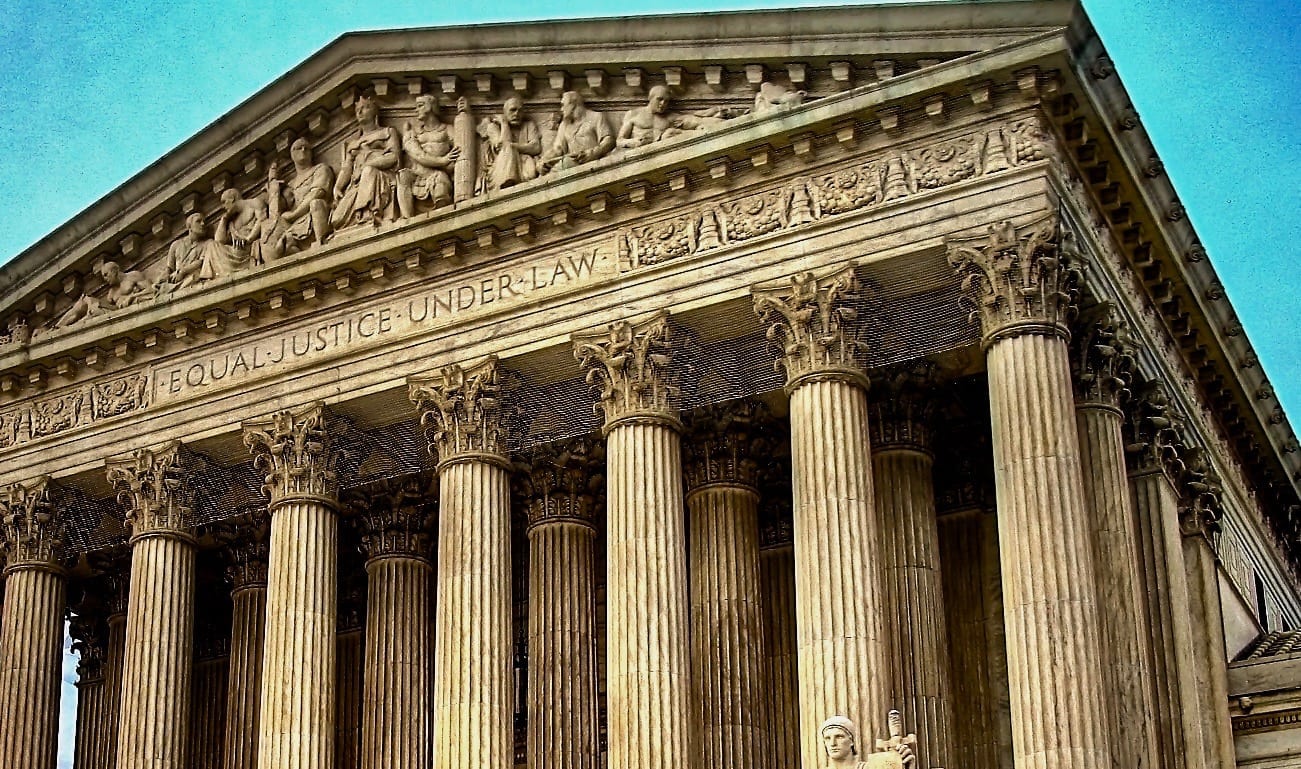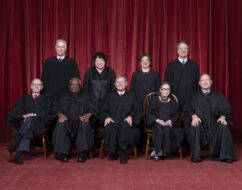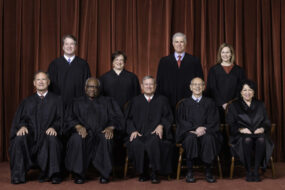
No related resources
Introduction
In this article, Adrian Vermeule, a professor at Harvard Law School, advised conservatives to abandon originalism and instead adopt what he called common-good constitutionalism. While conservatives had achieved remarkable success in promoting originalism, gaining adherents on the left and appointing originalist judges to the federal courts, originalism, he argued, had outlived its usefulness for conservatives. Vermeule recommended an interpretive approach “based on the principles that government helps direct persons, associations, and society generally toward the common good, and that strong rule in the interest of attaining the common good is entirely legitimate.” Common-good constitutionalism would require justices to engage in what previously would have been called activism because it would go beyond the text itself.
Clearly drawing on language from Justice Brennan’s response to Attorney General Meese, Vermeule encouraged conservatives to engage in a moral reading of the Constitution grounded in the classical legal tradition, although for different ends than those Brennan supported. (In the classical legal tradition, Vermeule argues, the law is as Thomas Aquinas defined it in his Treatise on Law, “an ordinance of reason for the common good.”)
If the Constitution is as open-ended as Brennan claimed, then conservatives should not hesitate to interpret the Constitution expansively to support their goals in the same way that liberals and progressives had done. Originalists reacted with alarm to Vermeule’s article, calling common-good constitutionalism a dangerous threat to America’s founding principles. However, while Vermeule disagreed with some elements of conservative policy, such as hostility to organized labor and support for corporate interests, which he thought were incompatible with the common good, harnessing the language of living constitutionalism for common-good constitutionalism was most alarming to liberals and progressives. They called it “an argument for authoritarian extremism,” since, as Vermeule acknowledged, “the Court’s jurisprudence on free speech, abortion, sexual liberties, and related matters will prove vulnerable under a regime of common-good constitutionalism.” For Vermeule, however, those areas of jurisprudence were no more grounded in the text than common-good constitutionalism, making accusations of authoritarianism ironic.
Source: Adrian Vermeule, “Beyond Originalism,” The New Republic, March 31, 2020, https://www.theatlantic.com/ideas/archive/2020/03/common-good-constitutionalism/609037/. All rights reserved. Used under license.
In recent years, allegiance to the constitutional theory known as originalism has become all but mandatory for American legal conservatives. Every justice and almost every judge nominated by recent Republican administrations has pledged adherence to the faith. At the Federalist Society, the influential association of legal conservatives, speakers talk and think of little else. Even some luminaries of the left-liberal legal academy have moved away from speaking about “living constitutionalism,” “fundamental fairness,” and “evolving standards of decency,” and have instead justified their views in originalist terms. One often hears the catchphrase, “We are all originalists now.”
Originalism comes in several varieties (baroque debates about key theoretical ideas rage among its proponents), but their common core is the view that constitutional meaning was fixed at the time of the Constitution’s enactment. This approach served legal conservatives well in the hostile environment in which originalism was first developed, and for some time afterward.
But originalism has now outlived its utility, and has become an obstacle to the development of a robust, substantively conservative approach to constitutional law and interpretation. Such an approach—one might call it “common-good constitutionalism”—should be based on the principles that government helps direct persons, associations, and society generally toward the common good, and that strong rule in the interest of attaining the common good is entirely legitimate. . . .
Alternatives to originalism have always existed on the right, loosely defined. One is libertarian (or “classical liberal”) constitutionalism, which emphasizes principles of individual freedom that are often in uneasy tension with the Constitution’s original meaning and the founding generation’s norms. The founding era was hardly libertarian on a number of fronts that loom large today, such as freedom of speech and freedom of religion; consider that in 1811, the New York courts, in an opinion written by the influential early jurist Chancellor James Kent, upheld a conviction for blasphemy against Jesus Christ as an offense against the public peace and morals. Another alternative is Burkean traditionalism, which tries to slow the pace of legal innovation. Here, too, the difference with originalism is clear, because originalism is sometimes revolutionary; consider the Court’s originalist opinion declaring a constitutional right to own guns, a startling break with the Court’s long-standing precedents.
These alternatives still have scattered adherents, but originalism has prevailed, mainly because it has met the political and rhetorical needs of legal conservatives struggling against an overwhelmingly left-liberal legal culture. The theory of originalism, initially developed in the 1970s and ’80s, enjoyed its initial growth because it helped legal conservatives survive and even flourish in a hostile environment, all without fundamentally challenging the premises of the legal liberalism that dominated both the courts and the academy. . . .
But circumstances have now changed. The hostile environment that made originalism a useful rhetorical and political expedient is now gone. Outside the legal academy, at least, legal conservatism is no longer besieged. . . .
Assured of this, conservatives ought to turn their attention to developing new and more robust alternatives to both originalism and left-liberal constitutionalism. It is now possible to imagine a substantive moral constitutionalism that, although not enslaved to the original meaning of the Constitution, is also liberated from the left-liberals’ overarching sacramental narrative, the relentless expansion of individualistic autonomy. Alternatively, in a formulation I prefer, one can imagine an illiberal legalism that is not “conservative” at all, insofar as standard conservatism is content to play defensively within the procedural rules of the liberal order.
This approach should take as its starting point substantive moral principles that conduce to the common good, principles that officials (including, but by no means limited to, judges) should read into the majestic generalities and ambiguities of the written Constitution.1 These principles include respect for the authority of rule and of rulers; respect for the hierarchies needed for society to function; solidarity within and among families, social groups, and workers’ unions, trade associations, and professions; appropriate subsidiarity, or respect for the legitimate roles of public bodies and associations at all levels of government and society; and a candid willingness to “legislate morality”—indeed, a recognition that all legislation is necessarily founded on some substantive conception of morality, and that the promotion of morality is a core and legitimate function of authority. Such principles promote the common good and make for a just and well-ordered society.
To be sure, some have attempted to ground an idea of the common good on an originalist understanding, taking advantage of the natural-rights orientation of the founding era. Yet that approach leaves originalism in ultimate control, hoping that the original understanding will happen to be morally appealing. I am talking about a different, more ambitious project, one that abandons the defensive crouch of originalism and that refuses any longer to play within the terms set by legal liberalism. Ronald Dworkin, the legal scholar and philosopher, used to urge “moral readings of the Constitution.” Common-good constitutionalism is methodologically Dworkinian, but advocates a very different set of substantive moral commitments and priorities from Dworkin’s, which were of a conventionally left-liberal bent.
Common-good constitutionalism is not legal positivism, meaning that it is not tethered to particular written instruments of civil law or the will of the legislators who created them. Instead it draws upon an immemorial tradition that includes, in addition to positive law, sources such as the ius gentium—the law of nations or the “general law” common to all civilized legal systems—and principles of objective natural morality. . . .
Common-good constitutionalism is also not legal liberalism or libertarianism. Its main aim is certainly not to maximize individual autonomy or to minimize the abuse of power (an incoherent goal in any event), but instead to ensure that the ruler has the power needed to rule well. A corollary is that to act outside or against inherent norms of good rule is to act tyrannically, forfeiting the right to rule, but the central aim of the constitutional order is to promote good rule, not to “protect liberty” as an end in itself. Constraints on power are good only derivatively, insofar as they contribute to the common good; the emphasis should not be on liberty as an abstract object of quasi-religious devotion, but on particular human liberties whose protection is a duty of justice or prudence on the part of the ruler.
Finally, unlike legal liberalism, common-good constitutionalism does not suffer from a horror of political domination and hierarchy, because it sees that law is parental, a wise teacher and an inculcator of good habits. Just authority in rulers can be exercised for the good of subjects, if necessary even against the subjects’ own perceptions of what is best for them—perceptions that may change over time anyway, as the law teaches, habituates, and re-forms them. Subjects will come to thank the ruler whose legal strictures, possibly experienced at first as coercive, encourage subjects to form more authentic desires for the individual and common goods, better habits, and beliefs that better track and promote communal well-being. . . .
. . . . Promoting a substantive vision of the good is, always and everywhere, the proper function of rulers. Every act of public-regarding government has been founded on such a vision; any contrary view is an illusion. Liberal and libertarian constitutional decisions that claim to rule out “morality” as a ground for public action are incoherent, even fraudulent, for they rest on merely a particular account of morality, an implausible account.
Given that it is legitimate for rulers to pursue the common good, constitutional law should elaborate subsidiary principles that make such rule efficacious. Constitutional law must afford broad scope for rulers to promote … peace, justice, and abundance. Today, we may add health and safety to that list, in very much the same spirit. In a globalized world that relates to the natural and biological environment in a deeply disordered way, a just state is a state that has ample authority to protect the vulnerable from the ravages of pandemics, natural disasters, and climate change, and from the underlying structures of corporate power that contribute to these events. . . .[A] further corollary is that authority and hierarchy are also principles of constitutionalism. Finally, and perhaps most important, just rule emphasizes solidarity and subsidiarity. Authority is held in trust for and exercised on behalf of the community and the subsidiary groups that make up a community, not for the benefit of individuals taken one by one.
How, if at all, are these principles to be grounded in the constitutional text and in conventional legal sources? The sweeping generalities and famous ambiguities of our Constitution, an old and in places obscure document, afford ample space for substantive moral readings that promote peace, justice, abundance, health, and safety, by means of just authority, hierarchy, solidarity, and subsidiarity. The general welfare clause, which gives Congress “power to . . . provide for the common defense and general welfare of the United States,” is an obvious place to ground principles of common-good constitutionalism (despite a liberal tradition of reading the clause in a cramped fashion), as is the Constitution’s Preamble, with its references to general welfare and domestic tranquility, to the perfection of the union, and to justice. Constitutional words such as “freedom” and “liberty” need not be given libertarian readings; instead they can be read in light of a better conception of liberty as the natural human capacity to act in accordance with reasoned morality.
More important still, thinking that the common good and its corollary principles have to be grounded in specific texts is a mistake; they can be grounded in the general structure of the constitutional order and in the nature and purposes of government. The Supreme Court, like Congress and the presidency, has often drawn upon broad structural and natural-law principles to determine the just authority of the state. . . .America’s real, “efficient” Constitution is largely unwritten or uncodified, as is true of constitutions everywhere.
This is not the occasion to offer a bill of particulars about how constitutional law might change under this approach, but a few broad strokes can be sketched. The Court’s jurisprudence on free speech, abortion, sexual liberties, and related matters will prove vulnerable under a regime of common-good constitutionalism. The claim, from the notorious joint opinion in Planned Parenthood v. Casey,2 that each individual may “define one’s own concept of existence, of meaning, of the universe, and of the mystery of human life” should be not only rejected but stamped as abominable, beyond the realm of the acceptable forever after. So too should the libertarian assumptions central to free speech law and free speech ideology—that government is forbidden to judge the quality and moral worth of public speech, that “one man’s vulgarity is another’s lyric,” and so on—fall under the ax. Libertarian conceptions of property rights and economic rights will also have to go, insofar as they bar the state from enforcing duties of community and solidarity in the use and distribution of resources.
As for the structure and distribution of authority within government, common-good constitutionalism will favor a powerful presidency ruling over a powerful bureaucracy, the latter acting through principles of administrative law’s inner morality with a view to promoting solidarity and subsidiarity. The bureaucracy will be seen not as an enemy, but as the strong hand of legitimate rule. The state is to be entrusted with the authority to protect the populace from the vagaries and injustices of market forces, from employers who would exploit them as atomized individuals, and from corporate exploitation and destruction of the natural environment. Unions, guilds and crafts, cities and localities, and other solidaristic associations will benefit from the presumptive favor of the law, as will the traditional family; in virtue of subsidiarity, the aim of rule will be not to displace these associations, but to help them function well. Elaborating on the common-good principle that no constitutional right to refuse vaccinations exists, constitutional law will define in broad terms the authority of the state to protect the public’s health and well-being, protecting the weak from pandemics and scourges of many kinds—biological, social, and economic—even when doing so requires overriding the selfish claims of individuals to private “rights.” Thus the state will enjoy authority to curb the social and economic pretensions of urban gentry liberals who so often place their own satisfactions (financial and sexual) and the good of their class or social milieu above the common good.
In this sense, common-good constitutionalism promises to expand and fulfill, in new circumstances and with a new emphasis, the Constitution’s commitments to promoting the general welfare and human dignity. Overall, constitutionalism will become more direct, more openly moral, less tied to tendentious law-office history and endless litigation of dubious claims about events centuries in the past. Originalism has done useful work and can now give way to a new confidence in authoritative rule for the common good.

Conversation-based seminars for collegial PD, one-day and multi-day seminars, graduate credit seminars (MA degree), online and in-person.





